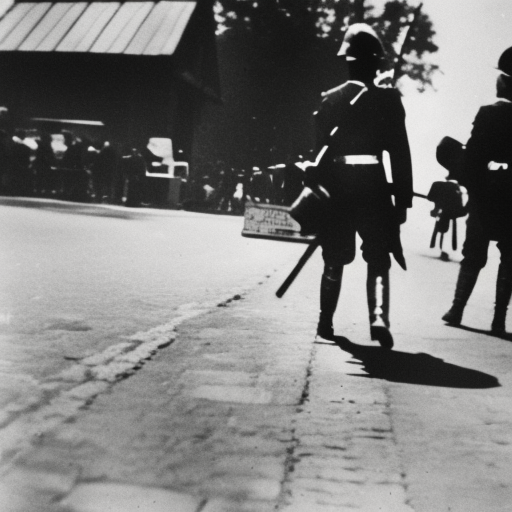Nine Years’ War: A Conflict of European Powers
The Nine Years’ War, also known as the War of the Grand Alliance, was a major conflict that took place from 1688 to 1697. It involved several European powers, including France, England, Spain, and the Dutch Republic. The war was primarily fought over territorial disputes and the balance of power in Europe. It had a significant impact on the political landscape and set the stage for future conflicts.
The Causes of the War
The war was triggered by the Glorious Revolution in England in 1688, which saw William of Orange overthrow King James II. This event alarmed the French king, Louis XIV, who feared that William would form an alliance against him. Louis XIV sought to expand French influence and control by supporting James II in his bid to regain the English throne. This interference in English affairs led to a conflict between France and the Grand Alliance, a coalition of European powers opposed to French expansion.
The Course of the War
The war began in 1688 with a series of naval battles between England and France. The English navy, under the command of Admiral Edward Russell, achieved several victories, securing control of the seas and preventing French invasion attempts. On land, the war was characterized by a series of sieges and battles across Europe. The most significant battles included the Battle of the Boyne in Ireland in 1690, where William of Orange defeated James II, and the Battle of Landen in 1693, where the French army under Marshal Luxembourg defeated the Dutch and their allies.
The Treaty of Ryswick
After nine years of fighting, both sides grew weary of the conflict and sought a resolution. In 1697, the Treaty of Ryswick was signed, bringing an end to the war. The treaty recognized William of Orange as the legitimate ruler of England and confirmed the territorial status quo in Europe. It also marked a shift in the balance of power, as France’s expansionist ambitions were curtailed.
The Impact of the War
The Nine Years’ War had far-reaching consequences for Europe. It solidified the power of the Dutch Republic and England as major players on the continent. It also weakened the position of Louis XIV and France, as they were unable to achieve their territorial ambitions. The war also had economic consequences, as it disrupted trade and caused financial strain on the participating countries.
Legacy and Significance
The Nine Years’ War set the stage for future conflicts in Europe. It highlighted the importance of maintaining a balance of power and led to the formation of alliances to counter French expansion. The war also laid the groundwork for the War of the Spanish Succession, which erupted shortly after the Treaty of Ryswick. Additionally, the war had a significant impact on the development of military tactics and technology, as both sides sought to gain an advantage on the battlefield.
In conclusion, the Nine Years’ War was a major conflict that involved several European powers. It was triggered by the Glorious Revolution in England and was fought over territorial disputes and the balance of power in Europe. The war had a significant impact on the political landscape and set the stage for future conflicts. It ended with the signing of the Treaty of Ryswick, which recognized William of Orange as the ruler of England and curtailed French expansion. The war’s legacy and significance can be seen in the subsequent conflicts and the development of military tactics.












